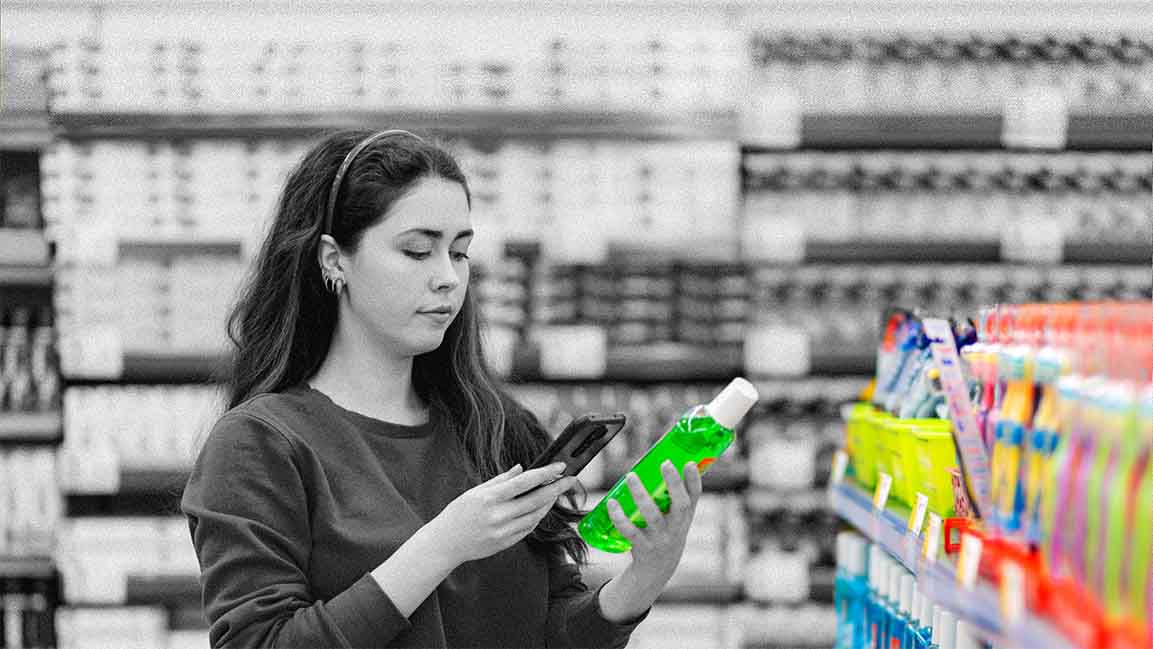- | 9:00 am
Sustainable beauty is on the rise in the Middle East. But consumers want to know what’s in the label
Experts discuss avoiding greenwashing as an eco-conscious consumer base drives demand for sustainable beauty products

In recent years, the Middle East has witnessed a significant shift toward eco-conscious consumerism, and the beauty and personal care sector is not exempted from this trend. The Middle East beauty and personal care market was valued at $11.6 billion in 2022 and is expected to grow at a CAGR of 7.2% from 2023 to 2030. Statista noted that in the UAE alone, per capita revenue per person is set to generate $130.50 in 2023.
“The UAE community has shown a growing inclination toward environmentally conscious choices, particularly in personal care,” says N.S. Balasubramanian, CEO of Aster Retail, a pharmacy retail chain.
Trends they have observed include a preference for products with natural and organic ingredients and items that are sustainably sourced, cruelty-free, and packaged using eco-friendly packing materials.
This is a trend that Mukta Tewani, Founder of MissPalettable, a conscious beauty platform, confirms. “We are seeing more brands take on the halal certification as well as vegan certification,” she says, adding that more brands are using traditional regional ingredients and opting for sustainable packaging such as bioplastic and clean and transparent formulations.
MEETING CONSUMER DEMAND
The shift in consumer preferences can be attributed to growing awareness of the benefits of eco-friendly products. UK board-certified dermatologist Dr Hamdan Abdullah Hamed says, “Investing in these products means investing in long-term health and beauty.”
He adds that common ingredients for eco-friendly cosmetics are natural oils and plants such as corn and soybeans.“Compared to traditional makeup, which has product contamination and harmful ingredients, these are helpful to the skin. Some cosmetic firms even have formaldehyde in their products, which is a carcinogen.”
Also, consumers know the power they hold to products, promising more ethical practices.
The sector has become acutely aware of consumers shifting priorities. Balasubramanian says Aster has been aligning with their customers’ growing interest in eco-friendly alternatives. “We focus on stocking up on eco-friendly alternatives within our product range.”
Tewani adds that MissPalettable also tries to onboard eco-friendly makeup. “Our beauty products are safe, conscious, and environmentally responsible,” she says. “We prefer to promote transparency and ethics to empower consumers to make conscious choices.”
HOW TO AVOID GREENWASHING
Given the great demand, it is no surprise that cases of misrepresentation can run rampant. “We have seen ‘eco-friendly’ brands that greenwash and push an extreme narrative, but when you dive deeper, it’s a different story,” says Tewani. Dr Hamed shared the same sentiment, warning consumers to buy natural green cosmetics and avoid companies that commit greenwashing, urging the public to be vigilant and research.
Balasubramanian says that Aster ensures eco-friendly products by adhering to rigorous criteria and standards involving scrutiny in several areas, such as ingredients and formulation.
In addition to safe formulation and ingredient transparency, Tewani says consumers should be aware of eco-friendly makeup brands focusing on ethical sourcing and packaging. “Being cruelty-free and socially responsible is another factor,” she says.
CERTIFICATION AND COMPLIANCE
Dr Hamed says it is equally essential for consumers and companies choosing a brand to properly determine if the makeup manufacturer is committed to safety and testing. “You can confirm by looking for the EWG Verified certification on the Skin Deep Database,” he says. “If they are EWG-stamped, they implement safe manufacturing practices, and the certification also means they avoid harmful ingredients.”
Balasubramanian further underlines the importance of third-party assessments, pointing out that products with credible certifications such as organic, Ecocert, cruelty-free, vegan, or halal certifications are highly regarded. “These certifications ensure transparency and adherence to specific standards,” he says.
He adds compliance is critical. “All products must comply with the regulatory standards set forth by relevant authorities.”
HURDLES WITH ECO-FRIENDLY PRODUCTS
Though the benefits of eco-friendly products are clear, Balasubramanian shares that sourcing and stocking eco-friendly personal care and cosmetic products present unique challenges.
Among the hurdles stores have had to navigate include limited availability. “Finding a diverse range of eco-friendly products that meet our stringent criteria can be challenging,” he says, adding that ensuring a consistent supply chain for these products, especially those sourced globally, can be complex as factors like shipping, import regulations, and supplier reliability can impact the timely availability of eco-friendly items.
Furthermore, Balasubramanian says encouraging suppliers to align with eco-friendly standards sometimes requires educational efforts. Additionally, such products often come at a premium due to sustainable sourcing, ethical manufacturing, and quality ingredients. “Balancing the cost to make these products accessible and affordable for our customers can be challenging.” Lastly, despite the growing interest, not all customers are fully aware of the benefits of eco-friendly alternatives.
“Educating and encouraging them to embrace these products sometimes requires additional effort,” he points out.
FILLING THE EDUCATION GAPS
Dr. Hamed believes dermatologists can play a critical role in addressing this issue by advancing their role in sustainability by promoting eco-friendly skin products. “Since environmental impact can affect the skin, dermatologists should also choose to be aware of their social responsibility to promote these practices in the community,” he says.
“Dermatologists may also work with makeup firms to create eco-friendly products for customers.”
For Balasubramanian, equipping pharmacists with information about eco-friendly products to better engage with customers and provide guidance, product information and labels is essential. “This information empowers customers to make informed decisions,” he says.
As such, Tewani issues a powerful reminder of the power that each consumer holds. “We believe everyone should start being more conscious about their consumption,” she says. “My best advice would be to do your research and take it one step at a time. Be mindful of your consumption and learn more about the brands and what they stand for.”








































